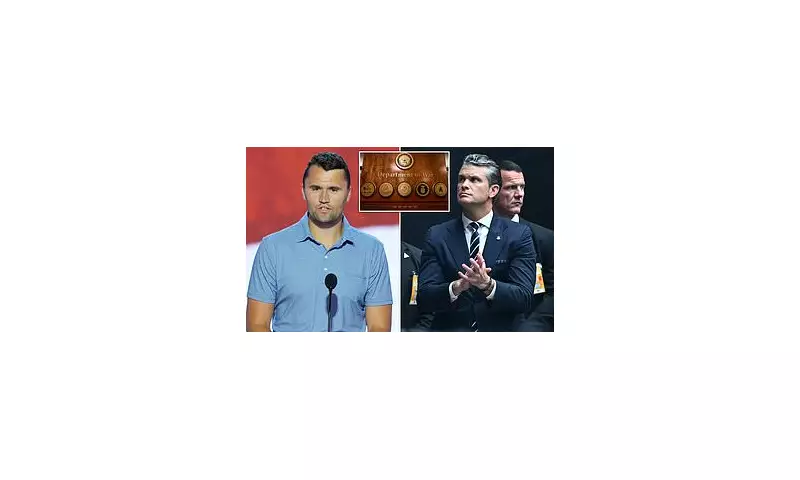
Two prominent Fox News personalities are facing intense scrutiny after doubling down on controversial conspiracy theories about alleged government operations against political opponents. Pete Hegseth and Charlie Kirk have sparked outrage with their repeated claims of a coordinated 'deep state dragnet' targeting supporters of former President Donald Trump.
Unsubstantiated Allegations Gain Traction
During recent broadcasts, both commentators amplified baseless theories about government surveillance programs specifically designed to monitor and harass conservative voters. Legal experts and fact-checkers have universally dismissed these claims, pointing to a complete lack of evidence supporting such operations.
Hegseth, a weekend host on Fox & Friends, has been particularly vocal in his assertions, suggesting the existence of shadowy government entities working to undermine political opposition. Meanwhile, Kirk's Turning Point USA organization has helped propagate these theories to younger audiences through social media campaigns.
Legal Experts Sound Alarm
Constitutional lawyers and government accountability watchdogs have expressed serious concerns about the potential consequences of such misinformation. Several legal analysts noted that these unfounded claims could undermine public trust in democratic institutions while potentially inciting unnecessary fear among voters.
"When media personalities with large platforms spread completely unsubstantiated theories about government operations, it creates genuine security concerns and erodes the foundation of our democratic processes," explained one constitutional law professor who wished to remain anonymous.
Pattern of Controversial Commentary
This isn't the first time either commentator has faced criticism for their on-air statements. Both Hegseth and Kirk have built substantial followings through their provocative commentary, often walking a fine line between political opinion and outright misinformation.
The recent escalation in rhetoric comes amid heightened political tensions surrounding upcoming elections, with some analysts suggesting the inflammatory language is strategically timed to maximize audience engagement and fundraising efforts.
Media Accountability Questions Raised
Broadcast regulators and media watchdogs are increasingly questioning the responsibility of news networks in fact-checking their contributors' claims. The repeated airing of unverified conspiracy theories has sparked debates about journalistic standards in opinion programming, particularly on networks claiming to provide fair and balanced coverage.
As the controversy continues to develop, both commentators remain unapologetic, framing the criticism as evidence of the very institutional bias they frequently denounce. The situation highlights ongoing tensions between free speech rights and the spread of potentially harmful misinformation in today's polarized media landscape.





